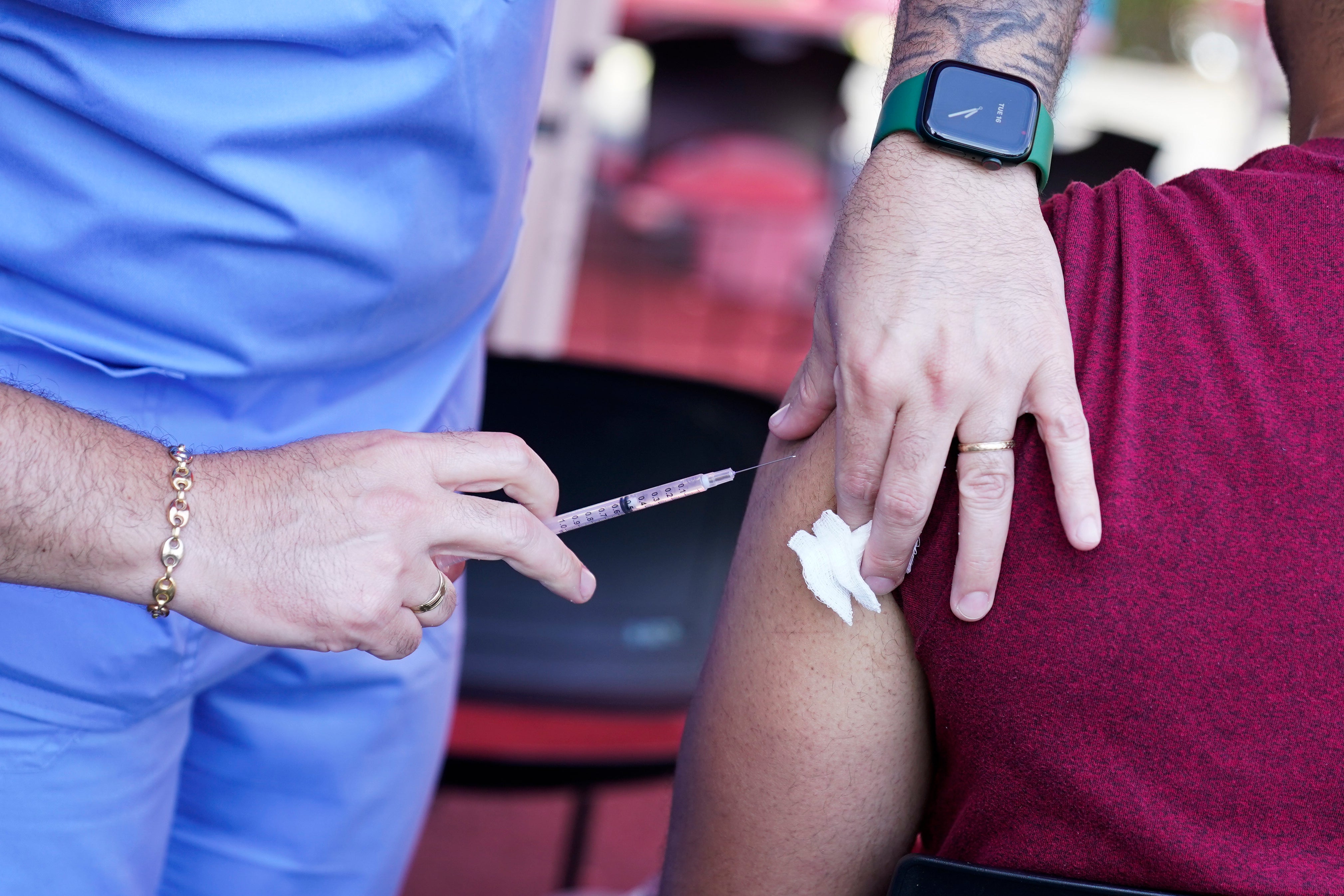US offers extra monkeypox vaccine doses for gay pride events
U.S. health officials are making extra monkeypox vaccine available to places with upcoming gay pride events

The U.S. is setting aside an extra 50,000 doses of monkeypox vaccine for places with upcoming gay pride events, health officials said Thursday.
The number of doses sent to each will be based on factors like the size of the event, how many health workers will be available to give shots, and how many of the attendees are considered at highest risk for catching the virus.
“More shots in arms is how we get the outbreak under control,” Bob Fenton, the White House monkeypox response coordinator, told reporters Thursday. He said the effort is an attempt to “meet people where they are.”
At least a dozen U.S. pride events are scheduled over the next two months, including large gatherings in Atlanta and New Orleans in early September. U.S. officials said they will send up to 2,000 additional doses to North Carolina, where the Charlotte Pride Festival & Parade will be held next week.
“I want to emphasize that while we are offering the vaccine at these events to those at high risk, this is a two-dose vaccine series, and receiving the vaccine at the event will not provide protection at the event itself," said Dr. Rochelle Walensky, director of the Centers for Disease Control and Prevention.
Monkeypox is endemic in parts of Africa, where people have been infected through bites from rodents or small animals, but it wasn't considered a disease that spreads easily among people. In May, however, a wave of unexpected infections began emerging in Europe and the U.S.
There have been more than 39,000 cases reported in countries that have not historically seen monkeypox. The U.S. has the most of any country, more than 13,500. The vast majority have occurred in men who have sex with men, but health officials stress that anyone can get monkeypox.
About 98% of U.S. cases are men and about 93% were men who reported recent sexual contact with other men.
Officials say the virus has been spreading mainly through skin-on-skin contact, but they warn it might also transmit in other ways, including through touching linens used by someone with monkeypox.
People with monkeypox may experience fever, body aches, chills and fatigue. Many in the outbreak have developed zit-like bumps on many parts of the body. For some the illness has been relatively mild, but others have called it extremely painful. No one in the U.S. has died, but deaths have been reported from other countries.
___
The Associated Press Health and Science Department receives support from the Howard Hughes Medical Institute’s Department of Science Education. The AP is solely responsible for all content.
Bookmark popover
Removed from bookmarks